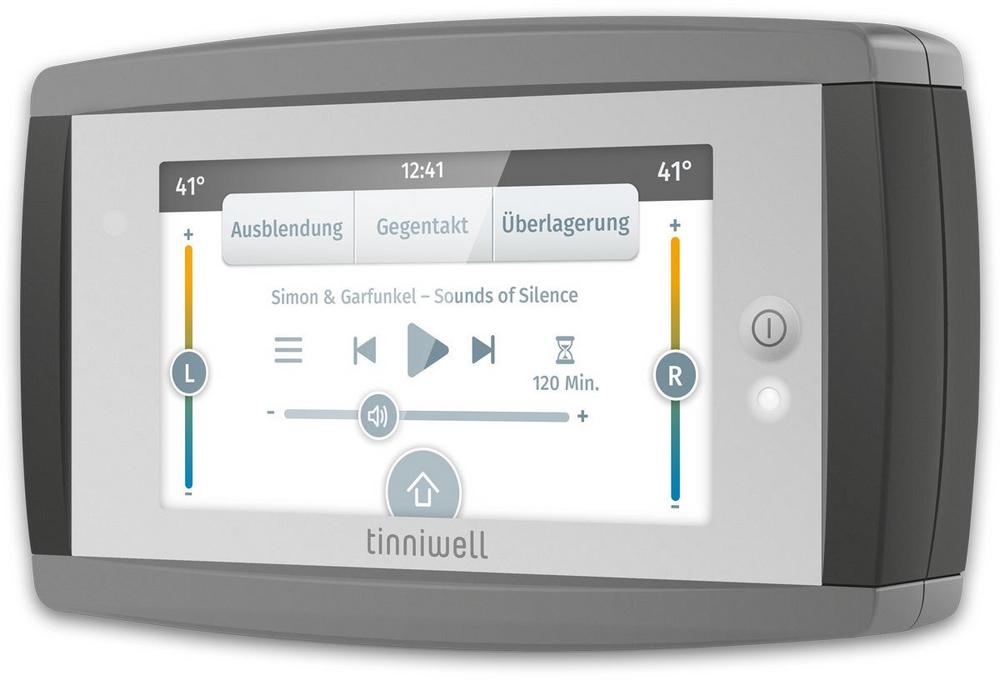A particularly bad testimony is given to cognitive behavioral therapy, which is protected by most health insurance companies. In the hope that the sound disappears, this therapy only teaches how to deal with everyday life or the displacement of the sound. This is of course past the patient’s needs but cheap. Over the years, the tinnitus tone gets louder at most patients and thus this displacement strategy has reached the expiration date and the patient is at the beginning of the next odyssey.
Only Tailor-Made Notched Music Training (TMNMT) in combination with heat therapy can currently bring relief or healing. The first clinical user observation of the tinniwell was carried out by Dr. Ebbers in Düren October 2016 to July 2017 in which 30 patients participated. There, 100% healing was documented after 4 weeks in one patient; on average, all patients had 54% relief after 4 weeks. A double-blind study on tinniwell will start this autumn with 60 patients.
By monitoring Resaphene in 250 patients from January 2019 – February 2020, 4 phases of therapy have now been identified. In phase 1, tinnitus becomes louder during or immediately after treatment. This can only occur after 2 days or 5 weeks. This is the indication that the therapy is working on the patient. In phase 2, the tinnitus tone drops and becomes quieter. Phase 3 is a big surprise for the patients because the tinnitus now partially disappears during the day. In the final phase 4, it also disappears at night. It is then recommended to continue the therapy for a further 3 weeks at the last known frequency, since the tinnitus will then permanently disappear. A premature termination leads to the tinnitus being present in its old appearance again within a week. Overall, phase 4 was observed after 3-4 months with a daily therapy duration of two hours.
In the past, two studies were carried out at the University of Münster on the topic of Tailor-Made Notched Music Training. In the second study, the subjects were advised to stop the therapy if the tinnitus worsened. According to our knowledge, this was the reason for the poor results from this study. An improvement in the patient’s tinnitus is always preceded by a worsening.
Resaphene Suisse AG, based in Roggwil, Switzerland, is a medical technology company that was founded in 2015 and has been selling a tinnitus therapy device under the name tinniwell since 2016. Resaphene Deutschland GmbH in Constance and Resaphene UK Ltd. in London and Resaphene US LLC in the US act as further sales companies.
Resaphene Suisse AG
Rütistrasse 8b
CH9325 Roggwil TG
Telefon: +41 (71) 4500-668
Telefax: +41 (71) 4500-669
https://resaphene.ch
Chief Executive Officer
Telefon: +41 (71) 4500-668
Fax: +41 (71) 4500-669
E-Mail: a.rauterkus@resaphene.ch
![]()

